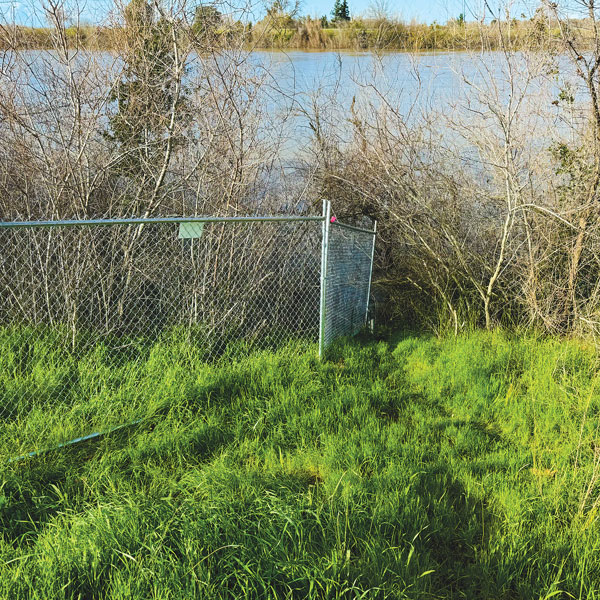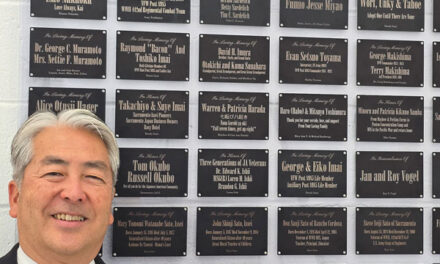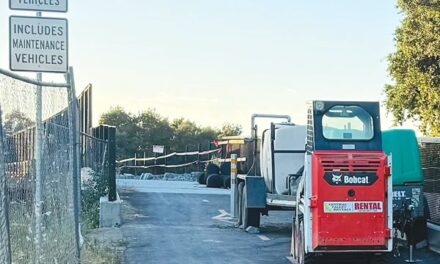Talking to a politician recently, I mentioned the need for elected officials to support public access along the Sacramento River Parkway.
This politician understands the problem: private fences blocking public access, a few homeowners trying to delay completion of the levee bike trail.
“I agree with you,” the politician tells me. “The city needs to finish the bike trail. The public needs access. But we have to respect those homeowners. They need compensation.”
Now I get frustrated. The politician, whom I’ve known for years and consider smart and informed, sounds oblivious to the biggest obstacle slowing the bike trail through Pocket and Little Pocket.

The politician doesn’t realize generous compensation has been offered and rejected—several times—by a handful of people whose backyards stretch near the levee bike path.
For these property owners, compensation isn’t the hangup. They hate the bikeway. They don’t want people riding and walking within sight of their homes.
For property owners near the levee, compensation is an excuse, not a reasonable demand. It’s a delay tactic.
None of this is news. Years ago, the city decided the best way to finish the parkway and eliminate private levee fences was to buy easements from reluctant property owners.
The city sent assessors around to determine fair easement values. The process was easy because the easements in question are imaginary lines drawn in theory. The legal basis for levee easements has never been established.
Some experts say yes, special recreational easements are needed for public access to certain sections of the levee.
Others disagree. They point out the state holds comprehensive ownership rights to the levee. The state’s Central Valley Flood Protection Board controls everything that happens along the river. It has for many decades.
First-year law students study property and easements. They learn the hallowed legal response, “It depends.”
Property rights and easements are called bundles of sticks. In the matter of parkway levees, the state holds the bundle.
Still, the easement question might be a reasonable debate if reasonable people were involved.
But the city doesn’t need legal debates. After promising the bike path in 1975, the city wants to finish the job.
Rather than argue about easements, rather than go to court and persuade a judge that the state owns the levees and controls public access, the city bowed to property owners near the levee.
The city offered cash to make peace and dissolve opposition to the bike trail.
How did the homesteaders respond? They slammed the door in the city’s face.
They ignored offers of taxpayer dollars for imaginary easements—paydays that could top $20,000 for fictional 12-foot strips atop the levee.
They turned down money and forced the city to finish easement discussions with eminent domain actions against the property owners.
These homesteaders can’t win in court. They can’t stop eminent domain once the city says it’s taking easements for public benefit. If the parkway bike trail isn’t a public benefit, nothing is.
Another problem for the property owners is their history of rejecting fair compensation offers. But remember, the levee easement debate has never been about compensation.
It’s about delaying and smothering the bike trail.
The city wants to wrap up the bike trail’s environmental requirements before it advances with eminent domain. Homeowners see the environmental process as one more chance to delay the inevitable.
Which is the saddest part of the parkway bike trail story.
A small group of property owners know they can’t stop the community from enjoying a world-class bike trail. Nonetheless, they’ve waged a 50-year battle to deny their neighbors the pleasure of walking or riding along the river.
When I mention this to my politician friend, there’s no pushback.
“When we weigh these questions, it’s a matter of who benefits most,” the politician says. “This time, it’s a couple dozen property owners vs. 500,000 city residents. Not a tough call.”
R.E. Graswich can be reached at regraswich@icloud.com. Follow us on Facebook and Instagram: @insidesacramento.
















